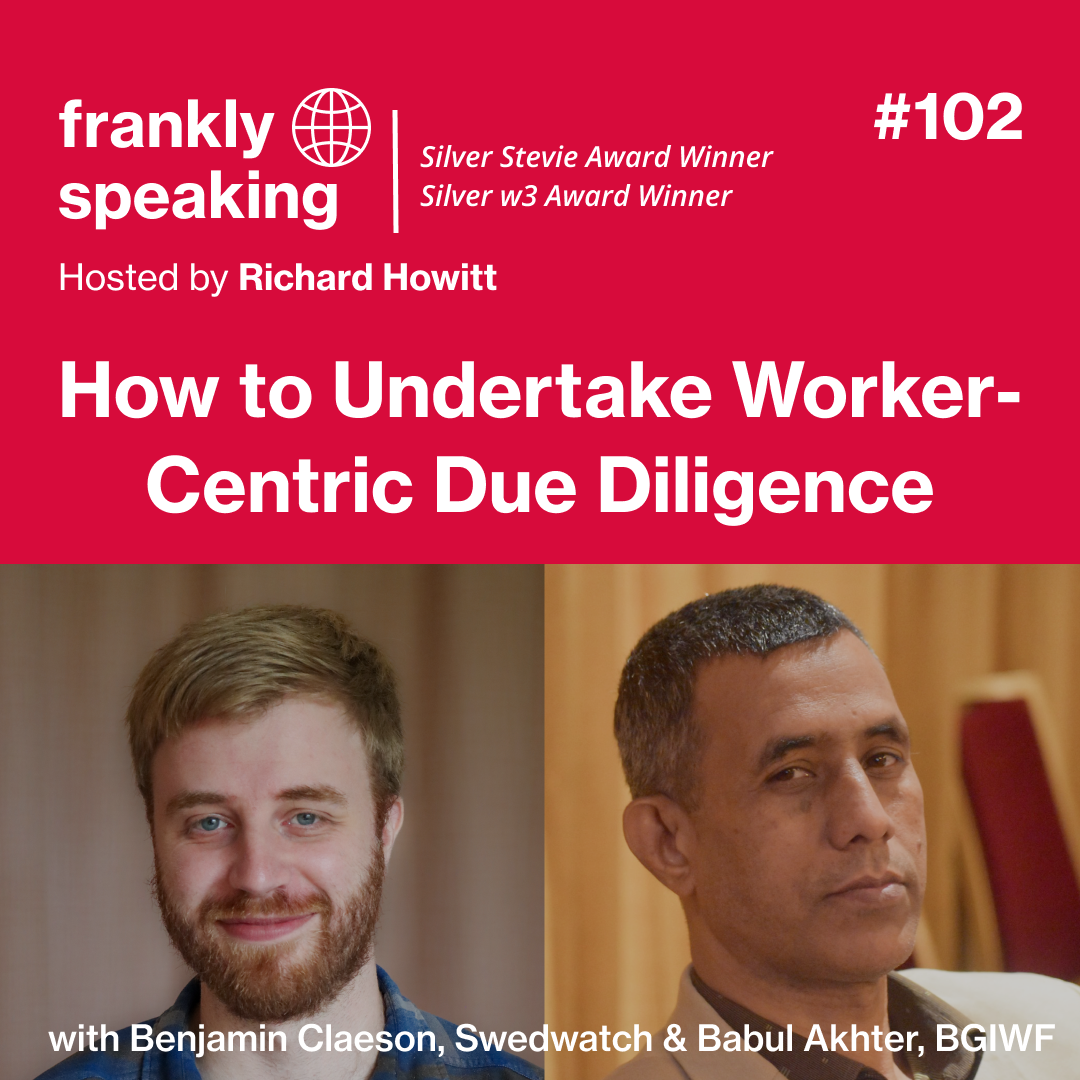Listen to Lene Serpa, Director and Head of Corporate Sustainability at A.P. Moller-Maersk, Rachel Davis, Vice-President and Co-founder of Shift and Filip Gregor, Head of Responsible Companies at Frank Bold.

To celebrate the first anniversary of the podcast, Richard Howitt welcomes back three of our special guests to bring you up to date on some of those issues and also to look forward to what's going to happen next: Rachel Davis, vice-president and co-founder of Shift, Lene Serpa, director and head of corporate sustainability at A.P. Moller-Maersk, and Filip Gregor, head of Frank Bold’s Responsible Companies Section.
In this episode, you’ll hear more of the debate between our guests:
“For the first time, we've named broad categories of affected stakeholders that give companies now an architecture to take forward risk assessment, identification, prioritisation processes. That's a real advancement in broader social sustainability reporting standards. Just bringing that kind of clear structure to what's being asked of companies, the opportunity now is for the CS3D, the Corporate Sustainability Due Diligence Directive to really follow that kind of clear approach, make sure it aligns with what's being asked of these same companies in reporting in terms of underlying management of risks to people and planet.”

.png)

How can we make sustainability governance deliver?


How can worker-centric models of due diligence help to better protect workers and communities worldwide from human rights abuses?
.png)

How did the ESRS simplification process look like from the inside? Listen to Patrick de Cambourg, outgoing chair of EFRAG